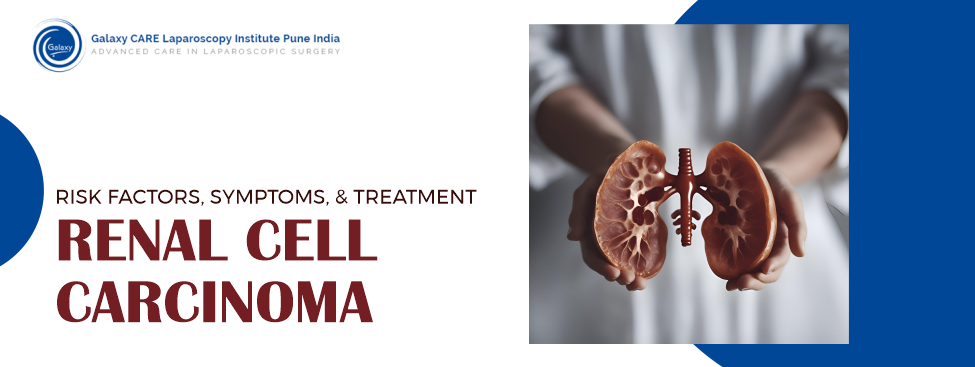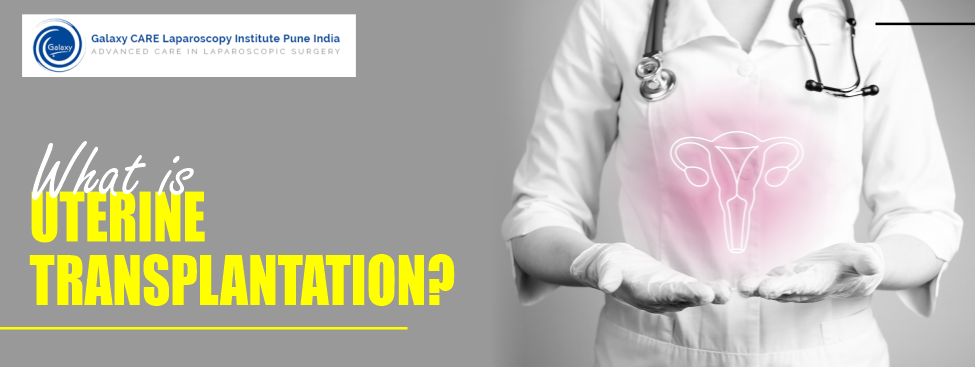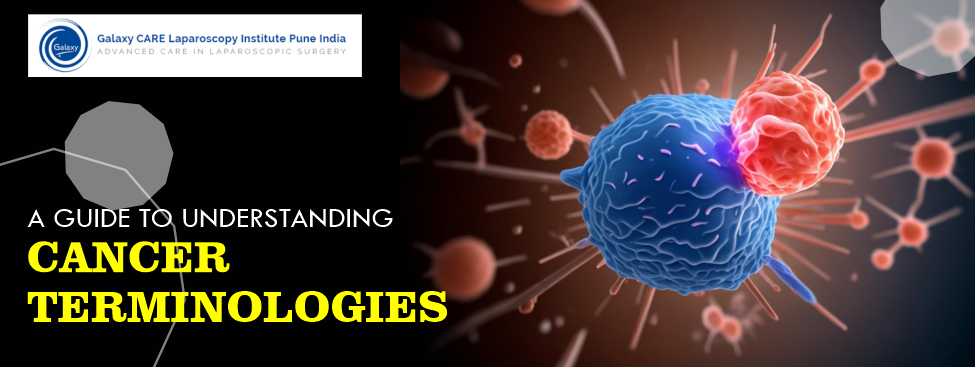
Renal Cell Carcinoma: Understanding the Risk Factors, Symptoms & Treatment
Renal Cell Carcinoma (RCC) is a type of kidney cancer that originates in the cells lining the small tubes within the kidney. It is the most common type of kidney cancer, accounting for approximately 90% of cases. It primarily affects adults, with the average age at diagnosis being around 65 years. Generally, RCC is more prevalent in men than women. The cases of RCC have been steadily increasing over the past few decades. The survival rates for RCC vary depending on the stage at diagnosis. The 5-year survival rate for localized RCC is around 93%. However, if the cancer has spread to nearby lymph nodes or other organs, the 5-year survival rate decreases to approximately 70%.
Being the Best Cancer Hospital in Pune, Galaxy Care Hospital strives to spread awareness of RCC. Through this comprehensive blog, we will delve into the causes, risk factors, symptoms, and treatment options, and conclude by highlighting the importance of seeking specialized care for the effective treatment of RCC. Let’s begin!
Risk Factors for Renal Cell Carcinoma
The exact cause of RCC is not yet fully understood. However, several factors are believed to contribute to the development of this type of kidney cancer. These include:
1. Genetic Factors: Certain genetic conditions such as von Hippel-Lindau disease, hereditary papillary renal cell carcinoma, hereditary leiomyomatosis and renal cell cancer syndrome can increase the risk of RCC.
2. Lifestyle Factors: Smoking, obesity, and high blood pressure have been linked to a higher risk of developing RCC.
3. Environmental Exposure: Prolonged exposure to certain chemicals, such as asbestos, cadmium, and organic solvents, may increase the risk of RCC.
4. Age and Gender: RCC is more commonly diagnosed in individuals over the age of 40, with men being more prone to develop it than women.
5. Family History: Having a family history of RCC or other kidney cancers increases the risk of developing RCC.
6. Obesity: Being overweight or obese increases the risk of developing RCC, possibly due to hormonal and metabolic changes.
7. High Blood Pressure: Chronic high blood pressure has been associated with an increased risk of RCC.
8. Smoking: Smoking is a well-known risk factor for various types of cancer, including RCC.
Symptoms of Renal Cell Carcinoma
The early stages of RCC often do not show any noticeable symptoms. However, as the cancer progresses, the following signs and symptoms may arise:
1. Blood in Urine: One of the most common signs of RCC is the presence of blood in the urine, which may appear pink, red, or cola-colored.
2. Lower Back Pain: Persistent pain in the lower back or on one side of the body can be a symptom of RCC.
3. Unexplained Weight Loss: Sudden and unexplained weight loss can be an indication of advanced RCC.
4. Fatigue: Feeling constantly tired, even without excessive physical exertion, can be a symptom of RCC.
5. Fever: In some cases, RCC can cause a persistent fever that is not associated with any other apparent cause.
Treatment Options for Renal Cell Carcinoma
The treatment of RCC depends on various factors, including the stage of cancer, the overall health of the patient, and individual preferences. Here are some common treatment options for RCC:
1. Surgery: The primary treatment for RCC involves surgically removing the tumor along with part or the entire affected kidney. This can be done through open surgery or minimally invasive techniques such as laparoscopic or robotic-assisted surgery. Galaxy Care Hospital is the Best Laparoscopic Cancer Surgery Hospital in Pune.
2. Targeted Therapy: Targeted drugs aim to interfere with specific molecules involved in cancer growth. These drugs can be used to treat advanced or metastatic RCC.
3. Immunotherapy: Immunotherapy drugs help to boost the body’s immune system to recognize and attack cancer cells. They are often used in advanced stages of RCC.
4. Radiation Therapy: In some cases, radiation therapy may be used to destroy cancer cells or relieve symptoms.
Consult The Best Cancer Specialist in Pune for Renal Cell Carcinoma Treatment
When it comes to treating renal cell carcinoma, choosing the right healthcare provider is crucial. Galaxy Care Hospital is a leading Cancer Hospital in Pune with a specialized oncology department, equipped with state-of-the-art technology and experienced medical professionals.
At Galaxy Care Hospital, patients with RCC can benefit from personalized treatment plans that are tailored to their specific needs. Our hospital offers a multidisciplinary approach, combining the expertise of oncologists, surgeons, and other healthcare professionals to ensure the best possible outcomes.
If you or your loved one is facing a diagnosis of renal cell carcinoma, don’t hesitate to seek expert care at Galaxy Care Hospital. Early detection, accurate diagnosis, and timely treatment can significantly improve the chances of successful outcomes. Book your appointment today!


